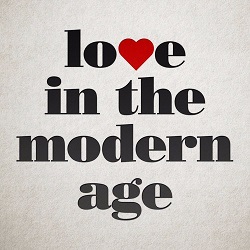
 Everything changes, everything stays the same – so Josh Rouse is still writing songs that look at the world from a slightly oblique angle but the soundtrack has changed a little. Strong opener ‘Salton Sea’ throws some funky uptempo synthesizer and chipping guitar into the mix – to create a sound not unlike something from the current release by The Decemberists. Everyone’s playing with their musical palette this year – to different levels of success. That ‘Salton Sea’ has a clear disco groove to it is also not that out of keeping with Josh Rouse’s back catalogue – ‘1972’ you’ll recall was downright funky in a heavy soul way reflective of the year the album snatched its title from. The yacht rock of ‘Ordinary People, Ordinary Lives’ has Rouse in the role of a private dick trailing a couple and photographing them – on observing a lover’s tiff, he turns to wondering what the woman is like in bed and, seemingly on a whim, decides to turn stalker: “I follow them on their way home just something that I do for fun / I’ve been watching for hours through the curtains in their room”. All of this, naturally, to a relentlessly bouncy synthezised tune with endless drum machine patterns.
Everything changes, everything stays the same – so Josh Rouse is still writing songs that look at the world from a slightly oblique angle but the soundtrack has changed a little. Strong opener ‘Salton Sea’ throws some funky uptempo synthesizer and chipping guitar into the mix – to create a sound not unlike something from the current release by The Decemberists. Everyone’s playing with their musical palette this year – to different levels of success. That ‘Salton Sea’ has a clear disco groove to it is also not that out of keeping with Josh Rouse’s back catalogue – ‘1972’ you’ll recall was downright funky in a heavy soul way reflective of the year the album snatched its title from. The yacht rock of ‘Ordinary People, Ordinary Lives’ has Rouse in the role of a private dick trailing a couple and photographing them – on observing a lover’s tiff, he turns to wondering what the woman is like in bed and, seemingly on a whim, decides to turn stalker: “I follow them on their way home just something that I do for fun / I’ve been watching for hours through the curtains in their room”. All of this, naturally, to a relentlessly bouncy synthezised tune with endless drum machine patterns.
Things carry on in the same vein – songs that probably sounded fine as acoustic demos are made into carbon copies of bland eighties soul-pop. Vocoder lines are thrown in on top of squawking saxaphones, synthesized “strings” make a pallid appearance. Keyboards make anemic stabs – no more so than on ‘Businessman’ on which Rouse seems to have made a half-hearted attempt to be Andrew Gold. ‘Women And The Wind’ has a theme as emotionally empty as anything on the album, with a protagonist who happily chirps: “They come and go / The women and the wind / like the sunrise / the to and fro / I thank them to the end / for making me smile”. It’s all quite depressing when compared to what he can achieve.
What the album could have been is demonstrated on the last song, ‘There Was A Time’ which relies less heavily on drum machines and brings the acoustic guitar more prominently into the mix – it’s a bit like a less grandstanding ABC. It’s a song rejecting the past: “there was a time when one woman just wasn’t enough / one house, one car, one drink, one pill, just wasn’t enough” and looking to a future of singular commitment. Also acting somewhat as a “goodbye to all that” aimed at this imagined eighties lifestyle and the eighties sound and thus a barb thrown at the whole album it is, not surprisingly, the best song on ‘Love In The Modern Age’.
Summary
Josh Rouse studiously recreates bland dispiriting eighties pop. One has to wonder why.


